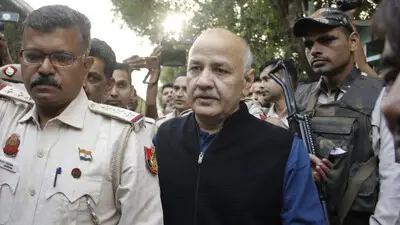Recommended Stories
The panel also floated a consultation paper on khap panchayats and honour killings seeking public opinion on it. The draft Prohibition of unlawful assembly (interference with the freedom of matrimonial alliances) Bill, 2011 says that offences under the Act will be cognisable, non-bailable and non-compoundable.
The draft bill proposes that offences under the Act will be tried by special courts to be headed by a Sessions Judge or an Additional Session Judge. The special courts, to be set up by states in consultation with the High Courts, will have the power of a Sessions Court.
Referring to suggestion to amend the IPC to introduce a provision to bring honour killings within the ambit of Section 300 (murder) of the Indian Penal Code, the Commission said there was no such need.
"The Commission is prima facie of the view that there is no need for introducing a provision in Section 300 IPC in order to bring the so-called `honour killings` within the ambit of this provision. The existing provisions in IPC are adequate enough to take care of the situations leading to overt acts of killing...," the consultation paper said.
Many young couples in the northern states have fallen victim to honour killings ordered by khap panchayats or self-styled caste councils.
The consultation paper comes nearly two years after the government had proposed to make honour killing a separate crime.
A Group of Ministers (GoM) under Finance Minister Pranab Mukherjee is also looking into the issue. The Commission also said that shifting the onus on to the accused facing accusations of involvement in the serious offence of murder or abetment is "not desirable."
"Such a move will be against the cardinal principles of jurisprudence accepted and absorbed into our criminal justice system. If burden of proof has to be shifted in such a case, logically, it will have to be done in a large number of other heinous crimes," it said referring to suggestions that those accused or honour killing will have to prove their innocence before law.
The Commission used the consultation paper to make it clear that `sagotra` marriages are not prohibited by law, "whatever may be the view in olden times." "...The Hindu Marriage Act does not prohibit sagotra or inter-caste marriages," it said.
Under the draft bill, no person or a group shall gather, assemble or congregate with the intention to deliberate on, or condemn any marriage, not prohibited by law. It explains that `Marriage` also includes a proposed or intended marriage.
Such gatherings will be treated as unlawful and attract a punishment of not less than six months in jail and a fine of Rs 10,000.
People indulging in criminal intimidation of the couple or their relatives or their supporters will also face punishment with a jail term of not less than one year.
The special court will be free to take cognisance of any offence, without the accused being committed to it for trial, upon receiving a complaint of facts, or upon a police report of such facts, the draft bill said.












